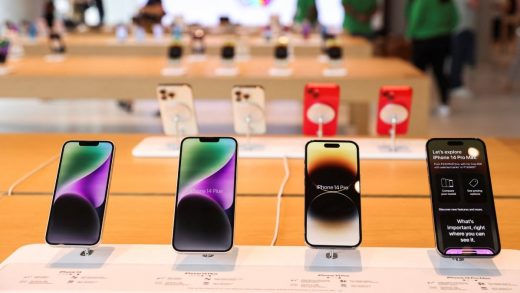
The next six months are critical to Meta’s future building the “metaverse” as the company prepares to launch a new high-end headset in 2022 while aiming to execute “flawlessly” on other priorities.
Cambria is the public codename for the upcoming high end standalone headset which features higher resolution color cameras packed into a slimmer visor and aimed at remote workers as well as mixed reality early adopters. The device comes equipped with a depth sensor plus face and eye tracking to drive avatars in simulated social settings. Meta is “laser focused” on shipping this first “prosumer / industrial-grade mixed reality” device this year, according to a memo obtained by The Verge and published in full on its website. The memo outlines Meta’s immediate priorities across the company as it continues to transform from its previous corporate identity as Facebook. One paragraph of that memo, reportedly written by chief product officer Chris Cox, specifically outlines the next steps toward “how we will deliver the next computing platform across our portfolio in Reality Labs.”
Key areas of that paragraph bolded below:
Metaverse: Avatars and Horizon Worlds + Platform remain the key priorities, and our focus now is on execution. On Avatars, we need to finalize our new art style, fully launch our avatar art store, and improve avatar experiences across VR and the Family of Apps. In Horizon, we’re focused on the core experience — increasing growth and retention through improved performance & reliability, launching cross-screens, integrations across the Family of Apps, and building new social experiences in the product. As critical product infrastructure, we are focused on shipping Project Simile to launch Company accounts accessible everywhere across Family of Apps and Reality Labs devices to power continuity across the metaverse. In hardware, we are laser-focused on the successful launch of Cambria in H2, which inaugurates our prosumer / industrial-grade mixed reality product line.
While much of this was already known, the paragraph was accompanied by a stern warning that “we need to execute flawlessly in an environment of slower growth.” Last year, Meta’s consulting technical expert John Carmack warned that building the so-called “metaverse” comes with a lot of risk, “we could spend years and thousands of people possibly and wind up with things that didn’t contribute all that much to the ways that people are actually using the devices and hardware today,” he said. This year, Meta has been cancelling projects and adjusting its long-term product plans as part of a process its chief technology officer Andrew Bosworth calls “ruthless prioritization.”
Bosworth said in a question & answer session on Instagram this week that Meta is “still on a path to ship augmented reality glasses but that path is long and winding…things are yielding well but they’re yielding late and they’re yielding expensive.” The company recently showcased a new research concept for an ultra-slim headset that’s “ski goggles” sized. Currently known as “Mirror Lake”, the concept puts VR optical research at Meta on the long-term path to passing the “Visual Turing Test” such that visuals from a headset are indistinguishable from reality.
While Cambria will be priced far outside the consumer market for most people, it also will run Quest VR games and move Meta toward its ultimate goal of AR glasses.


